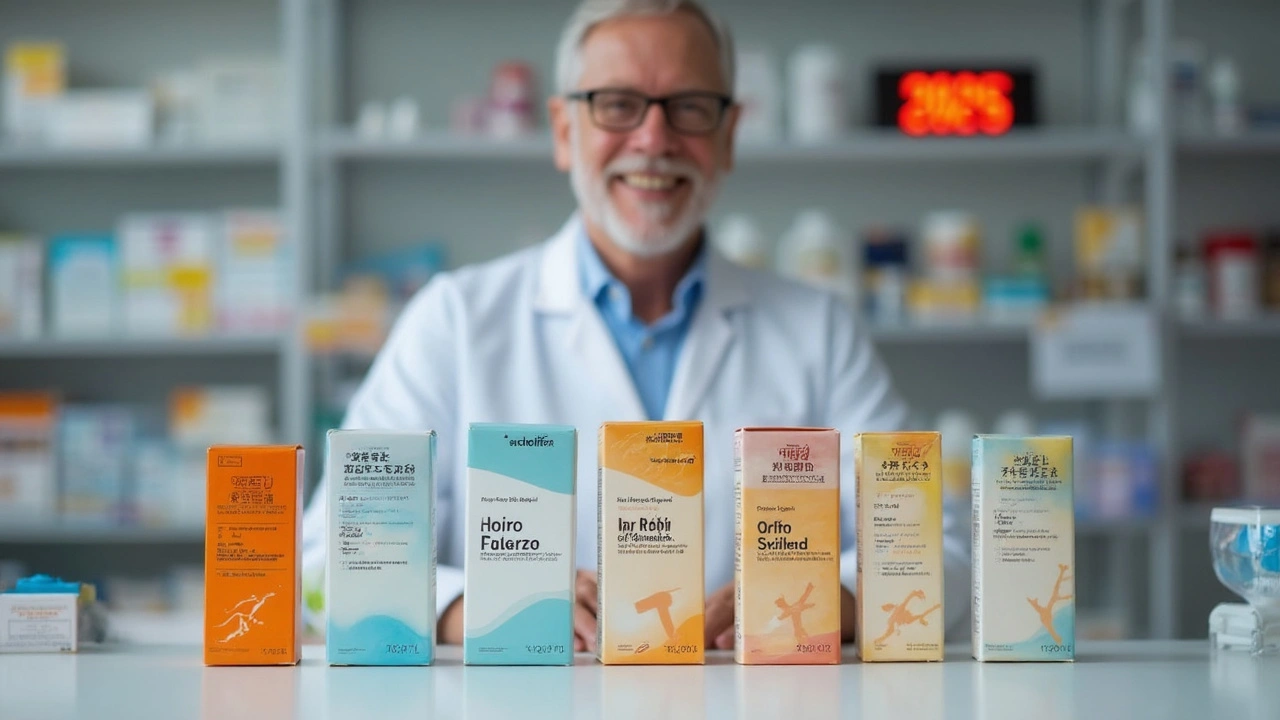GERD medication: quick relief and long-term options
If you get heartburn more than twice a week, that’s likely GERD—not just an occasional flare. You don’t have to suffer. There are fast fixes and stronger treatments that work differently, and knowing which one to use matters.
Quick fixes and how they work
Antacids (Tums, Maalox) neutralize stomach acid on contact. Use them when you need immediate relief after a meal or a spicy night out. They act fast but wear off in an hour or two and won’t heal esophagus damage.
Alginates (Gaviscon-style products) float on top of the stomach contents and block acid from splashing up. They’re great for nighttime symptoms or when lying down after eating.
H2 blockers like famotidine (Pepcid) cut acid production for several hours. They’re useful for predictable reflux—say you know heartburn hits after coffee. They work faster than prescription PPIs and can be taken as needed.
Stronger options and real-world tips
Proton pump inhibitors (PPIs) — omeprazole, esomeprazole, pantoprazole — are the go-to for chronic GERD. They lower acid production more powerfully and help heal the esophagus. Expect symptom improvement within a few days but full healing can take weeks. For best effect take a PPI 30–60 minutes before breakfast.
Prokinetic drugs (metoclopramide) speed stomach emptying and help some people with reflux, but they can have serious side effects if used long term. Doctors usually reserve them for short courses or specific cases.
Watch for side effects: PPIs can raise risk of low magnesium, B12 deficiency, and, rarely, kidney issues with long-term use. H2 blockers can cause headaches or confusion in older adults. Talk to your provider before combining GERD meds with blood thinners or other prescriptions—some PPIs affect clopidogrel and other drugs.
If a medicine isn’t helping, don’t double up on similar drugs without medical advice. For example, switching from famotidine to a PPI is common—but mixing two acid-reducing drugs isn’t usually necessary unless directed by a clinician.
Lifestyle moves make meds work better: lose a few pounds if you’re overweight, avoid late-night meals, stop smoking, limit alcohol and caffeine, and raise the head of your bed 6–8 inches. Identify personal triggers—fatty foods, peppermint, and tomato-based dishes are common culprits.
Thinking of buying meds online? Make sure the pharmacy is reputable, checks prescriptions when needed, and provides clear dosing information. NorthwestPharmacy.SU offers guides and product info to help you choose safely.
If you have alarm symptoms—unintentional weight loss, trouble swallowing, persistent vomiting, or blood in stool—see a doctor right away. They may order an endoscopy or other tests to rule out serious problems.
Bottom line: Use antacids or alginates for quick relief, H2 blockers for predictable short-term control, and PPIs for ongoing GERD that affects daily life or damages the esophagus. Talk to your provider about risks, drug interactions, and how long you should stay on treatment.

Top Alternatives to Ranitidine in 2025
Navigating the world of acid reflux medication can be tricky, especially with Ranitidine out of the picture. This article breaks down seven viable alternatives in 2025, comparing their benefits and drawbacks. Learn about options like Pantoprazole and their impact on conditions like GERD and ulcers. Make informed choices for managing your symptoms effectively.
Read More